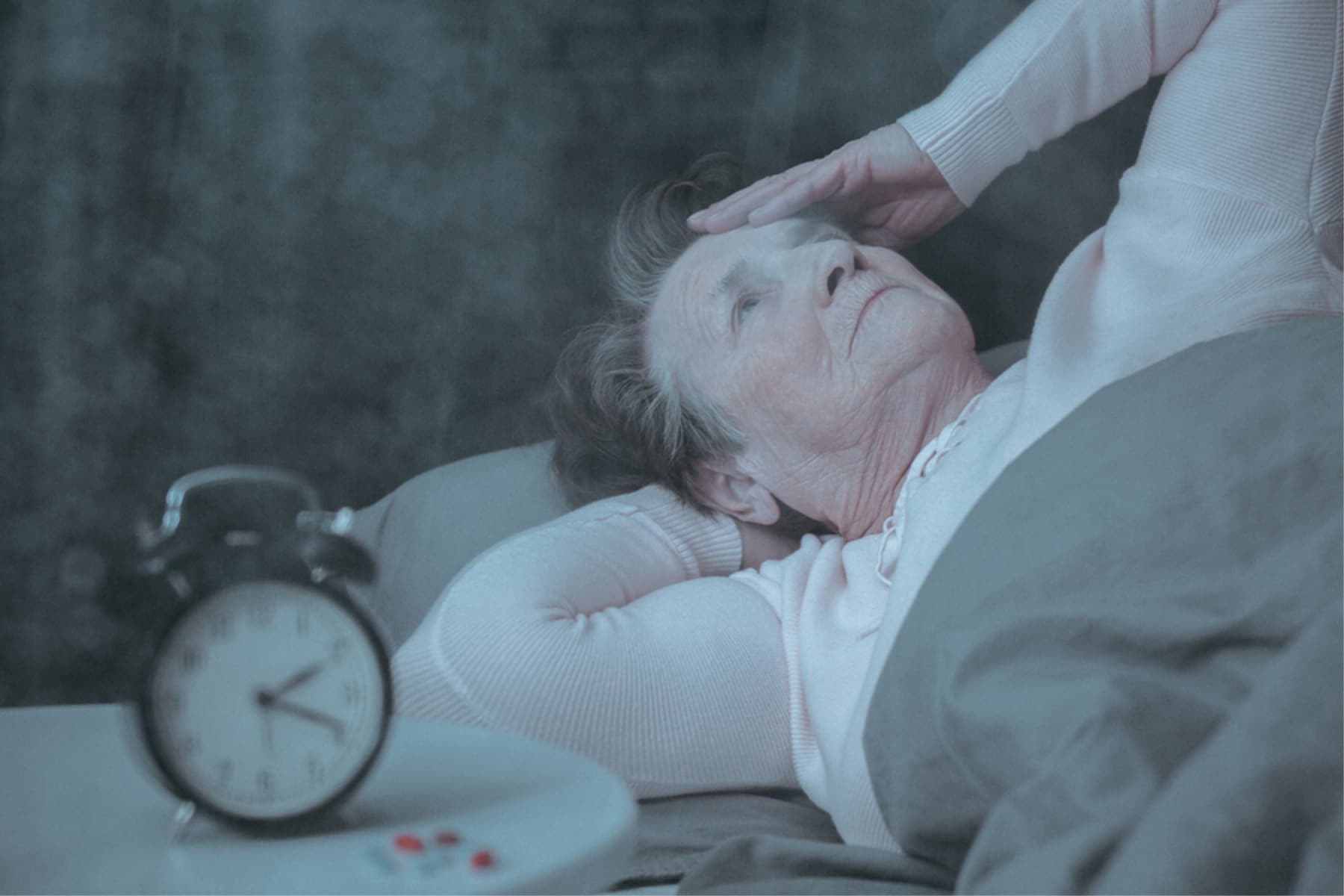Maybe as your parent was raising kids and creating a career, she dreamed of the days when she could sleep for as much as she wanted, whenever she wanted.
Now, she’s retired, living in her home and for some reason, sleep evades her. She’s talked to you about her inability to fall asleep, stay asleep or just sleep well.
By just getting older, some aspects of sleep will change, and that may be the bulk of what your parent is feeling. Understanding the reasons why her sleep patterns may not be exactly as she had hoped that they would be, could help her start the journey to a more restful sleep at night and less sleep deprivation.

1. Age alone.
Just because she’s older, your parent’s sleep patterns will change. Studies have shown that sleep patterns such as when a person naturally gets tired, as well as how deeply they sleep change each decade of life. Your parent may really want to stay up and attend midnight mass but now finds it physically impossible, and that’s normal.
2. Routine Changes For Sleep Deprivation
In her younger years, your parent probably had a much more active and possibly regulated schedule. She had a job to go to, kids to take care of, and a multitude of other responsibilities. Unfortunately, if she now spends most of her day sitting around the home, she may not be getting enough stimulation to use up her energy during the day, making it harder to unwind at night.
Encourage her to find some type of healthy routine by committing to a certain schedule. Maybe it’s a cup of coffee on the porch each morning, sweeping away the leaves, and waving hello to neighbors. Or your elder care provider could help by bringing her to the park each day for a walk around the outside paths. A schedule that uses physical energy will help her body sleep better at night. All of these can help with Sleep Deprivation.
3.Health conditions Can Also Cause Sleep Deprivation
Certain new health conditions could be interfering with your parent’s ability to sleep at night. Chronic pain may make it hard to stay asleep all night, or a condition that causes breathing problems may wake her up intermittently as she tries to sleep.
4. Medication side effects
Some medications may cause your parent to not be able to fall asleep or stay asleep. If she is seeing an increase in sleep deprivation after taking a medication, talk to her doctor about possible adjustments that could be made to the dosage or time of day the medication is taken.
5. Anxiety or worry
If your parent has a hard time turning her brain off at night because she can’t stop worrying about a concern or playing scenarios repeatedly in her brain, you might want to help her find more healthy ways to deal with her anxiety. It may be arranging for some talk therapy, or it could be some home remedies like journaling or yoga. If your parent is stressed about not getting home care tasks done like she used to (for example, she just can’t stay on top of the laundry and that’s bothering her), you might want to ask your elder care provider to help with chores that will give your parent peace of mind.
Don’t be afraid to make some changes in your parent’s life to help her sleep better. A good night’s sleep is paramount to a healthy lifestyle.
If you or an aging loved-one are considering hiring Senior Care in Chandler, AZ, or anywhere in the East Valley, please contact the caring staff at Legacy Home Care.
Call (480) 777-0070
Legacy Home Care has been serving the valley since 2007. We are family owned and operated with over 75 caregivers. We offer a customized care plan that includes services such as: Hourly Senior Home Care, 24-Hour Home Care, Dementia Care, Personal Care and Companion Care. Also ask us about our Veterans' Home Care program.
- Is Your Senior Parent Getting Enough Sleep? - April 24, 2025
- How to Cope with a Family Member Living with Dementia? - April 8, 2025
- Health Dangers of Stress for Seniors - March 20, 2025



